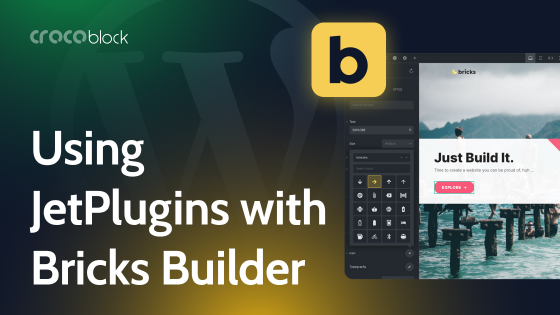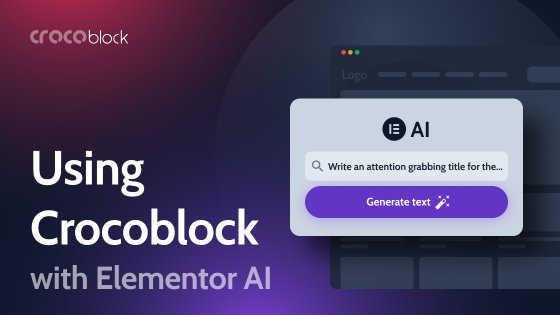Creating custom post types and taxonomies without directly working with PHP and CSS has been one of the most important trends for a while, right alongside WordPress page builders.
So many people all around the world prefer an intuitive approach to creating content and building websites.
That’s why developers are interested in plugins, which help to create dynamic content. JetEngine is one of such plugins. It has a lot of features, which help with:
- creating custom post types;
- making relations between CPT, CCT, users, and taxonomies;
- managing and controlling big data with REST API.
In this article, let’s figure out how it works and how you can use it on the website.
Table of Contents
What Is JetEngine?
JetEngine is an indispensable assistant to expanding the website’s capabilities and adding some WordPress dynamic content. Elementor PRO and Gutenberg have built-in functionality for adding dynamic content. But, unfortunately, you can choose only limited types of content: for example, video, image, and metadata. Moreover, it does not allow you to add custom taxonomies, custom post types, or custom fields.
That’s when plugins like JetEngine come to the rescue. At first glance, it is easy to underestimate the power of the plugin. Because to understand all the functions, the user needs to spend some time.
If you’re not familiar with JetEngine yet, but want to get to know it right now, we can recommend taking a look at a fantastic video tutorial from WPTuts:
The plugin is designed specifically for Elementor. It allows you to quickly create custom content types.
JetEngine Plugin Functionality
JetEngine replaces several plugins due to its functionality. So let’s see what possibilities it gives. The plugin has 47 features in total. Here are some of them:
- creating custom post types with all the needed meta fields for all kinds of content, from text areas and media to icon pickers, and setting repeaters for the meta fields;
- making custom taxonomy types to add for the existing posts and pages as well as for custom post types;
- ability to create listing templates for the custom post types or taxonomies with Elementor and the set of special widgets for displaying dynamic content on WordPress. After the template is created, its style will be applied to every post of the given type, which is very convenient, as you won’t have to duplicate a template with the same settings for every page or post;
- possibility to add WordPress dynamic tables and WordPress dynamic charts to your page or post;
- data store module allows to add likes/dislikes, favorites, etc. to the website;
- dynamic visibility feature brings more power to content management;
- geo search based on user geolocation;
- ability to add maps;
- relationship builder that allows creating relations between CPT, CCT, users, taxonomies, etc.;
- capability to set complex queries on the backend and apply them to the posts, users, terms, etc.;
- glossaries (it is a list of values that can be used as form field values, CPT values, etc.);
- visualization tool for Elementor dynamic content helps demonstrate different statistics or analytical data in a chart/table;
- ability to manage and control big data with REST API;
- different dynamic widgets, which output data from meta fields to the front, make different dynamic elements on the website, etc.
There is way more dynamic content for Elementor features – look at them more closely.
Also, JetEngine has a lot of useful integrations. Here are some of them:
- Elementor PRO;
- ACF;
- WooCommerce;
- RankMath;
- Yoast;
- Pods;
- CPT UI;
- SEOPress;
- Admin Columns.
With so many features and integrations, JetEngine allows you to create amazing things. Let’s take a look at a few popular features in more detail.
Dynamic Field widget
With the Grid Gallery, you can display the standard post type with image galleries. Create a custom post group in Posts and add a gallery field to the custom meta field.
You can also create a gallery in the form of a slider. To do this, use the Slider Gallery module.
If you want to create a QR code like on Danny’s Cleaning website, you can create one with JetEngine’s Dynamic Field Widget.

Dynamic calendar
With a dynamic website calendar, you can tell website visitors about important events—a practical module often used on booking sites, ticket sales, etc.
Profile Builder
Profile Builder is another popular feature of the JetEngine plugin. You can create and manage user profiles and share limited information with them. They can register through the front end.
Query Builder
With this useful feature, you can create complex custom query lists that can be combined on the backend and used to query any data, sections, and filters on the front end.
Tables Builder
You can find an example of using this feature on almost every site created with JetEngine. With it, you can create tables with any data and display them beautifully. These can be tables of products, users, comments, etc.
How to Use All the JetEngine Features?
With JetEngine, you can quickly bring all the ideas about your website to life.
To get started, install and activate the plugin, and then use this detailed video guide to help you master all the subtleties faster:
If you don’t like watching videos, here are some instructions to help you set up the most popular features of JetEngine:
- How to Create a Custom Post Type
- How to Create a Custom Taxonomy
- How to Add Custom Meta Fields to WordPress Post
- How to Create a Listing Template for Post Types
FAQ
It is a plugin from Crocoblock that allows you to add dynamic content to a WordPress site without programming: forms, custom post types, custom meta fields, and custom taxonomy are all added to the site with JetEngine in a few clicks. It helps to manage and control big data with REST API and create complex custom query lists.
No. You can install the plugin on your WordPress website and use it right away. But mastering all the plugin features takes time and some technical skills.
No, this is a paid plugin. It costs $43 per year for one project or $88 per year for unlimited projects.
Sum Up
Creating custom post types, taxonomies, and meta fields and displaying them with Elementor seems no longer a complicated task with JetEngine. This powerful plugin becomes an irreplaceable part of the Crocoblock subscription and perfectly complements JetThemeCore, which allows the creation of Archive and Single page templates.
With JetEngine, you’ll be able to bring to life even the most complex projects while working on them in Elementor page builder. JetEngine makes everything possible.

